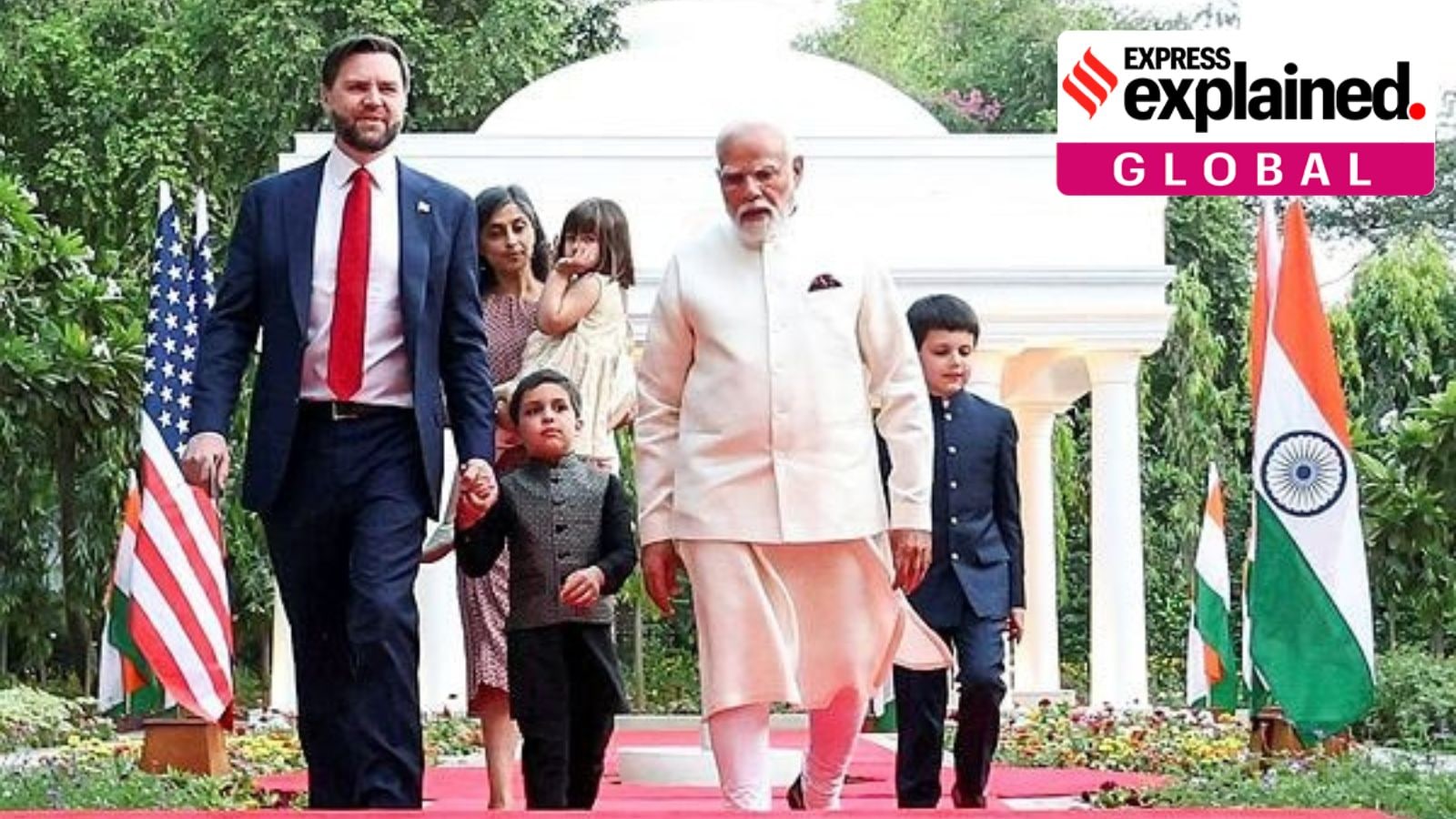At 40, he’s the authentic voice of the new American right, emerging as the leader of the ‘Make America Great Again’ movement that has propelled Donald Trump back to power and is driving social and political changes in the West unseen in a century.
That’s why, even though vice presidents rarely make a long-term impact on American politics, Vance could be the bold outlier.
His ideas may touch off sharp divides, but there is no ignoring the weight of his views and their impact on America and, increasingly, the world. As a powerful voice in contemporary American conservatism at the forefront of the new economic, political, and social battles, Vance is poised to exercise considerable influence on the Republican Party in the coming years.
In the 100 days of President Trump’s second term, Vice President Vance has shaped domestic and foreign policy debates to an unusual degree. He has been unafraid to court political controversy that has pitted him against Pope Francis on the question of illegal immigration; Vance was the last leader to meet with the Pope before he passed away on Monday.
Vance has also challenged America’s European allies on Ukraine and Russia, and trashed the social policies of Britain, which is at the core of the Anglophone alliance that has led the world for the last few centuries.
Vance’s speech at the Rajasthan International Centre in Jaipur on Tuesday (April 22) should offer some insights into his philosophy and politics, and what they might mean for India and its bilateral relations with the United States in the coming years.
Story continues below this ad
Observers would want to see the ideological and political convergence and divergence between the rising American right and the ascendant Indian conservatism.
Vance’s worldview of multiple strands
Vance’s worldview weaves together several political strands: national conservatism, backlash against the liberal hegemony of the past decades, traditional Catholic social teaching, and anti-elite populism.
Vance’s ideological evolution from being the narrator of the decline of the American white working class to the self-identified champion of the “postliberal right” highlights broader shifts within American society as it grapples with the failures of classical liberalism at home and abroad.
His idea of America challenges the traditional liberal view of America as a land of liberty, political and economic. He insists that American society and polity are grounded in values, heritage, and tradition. Vance dismisses the liberal vision of unconstrained capitalism and international leadership.
Story continues below this ad
It is no surprise he is opposed to free trade, mass migration, and international entanglements, arguing that these have harmed ordinary citizens while benefiting the elite.
Fighter for values, warrior against woke
The American economy, according to Vance, can’t just be about producing efficient conditions for US capital. It must also be about securing and bettering the lives of American workers and communities. Vance castigates the liberal tradition for “shipping American jobs overseas and sending American boys to fight wars” in distant lands.
Vance leads the conservative onslaught against what he calls the “woke” establishment — an alliance of corporations, universities, and media organizations that, in his view, imposes “progressive” values on the nation while silencing dissent.
Vance has called for a purge of “woke” influences from American life, arguing that the liberal hegemony threatens the moral and social fabric of the country. This anti-elite rhetoric is central to his appeal among conservative voters who feel alienated by the direction of American society and politics.
Story continues below this ad
Vance laments the loss of transcendent, objective values in American society and argues for a return to a moral order grounded in religious tradition. Critics see this as nostalgia for an America that will never come back.
But Vance is forthright in opposing abortion, same-sex marriage, and gun control, and a vocal supporter of natalist policies that encourage families to have more children.
Family, community, nation above world
Vance cites the Catholic doctrine of ordo amoris or ordered love to define his worldview in opposition to the globalists. The primary duty of the individual, Vance says, is to family, community, and nation, and only then the world.
Vance has been at the forefront of building bridges with the European right and developing a united front against what he sees as “progressive universalism” of the globalists.
Story continues below this ad
In his Munich speech in February, Vance berated the Europeans for refusing to defend themselves and undermining democracy by giving into liberal extremism. In a recent interview, he told the Europeans not to become a “permanent vassal” of the United States. He wished the Europeans had opposed American intervention in Iraq more boldly and prevented the cataclysmic consequences of that war that continue to ripple across the Western world.
Vance’s foreign policy positions distinguish him from long-held Republican views in favour of immigration, free trade, and military interventionism. Along with Trump, Vance has opposed US aid to Ukraine, instead advocating peace talks with Russia.
These positions reflect the Vice President’s broader scepticism of American interventions and his belief that foreign policy should prioritize national interests over abstract ideals, and that they should be in tune with the interests of the ordinary people.
While rejecting traditional alliances, Vance and his right-wing cohort are not turning their back on the world. They are eager to build partnerships with capable allies who are willing to share the burden of regional security in Eurasia.
Story continues below this ad
(The writer is Contributing Editor on international affairs for The Indian Express)

